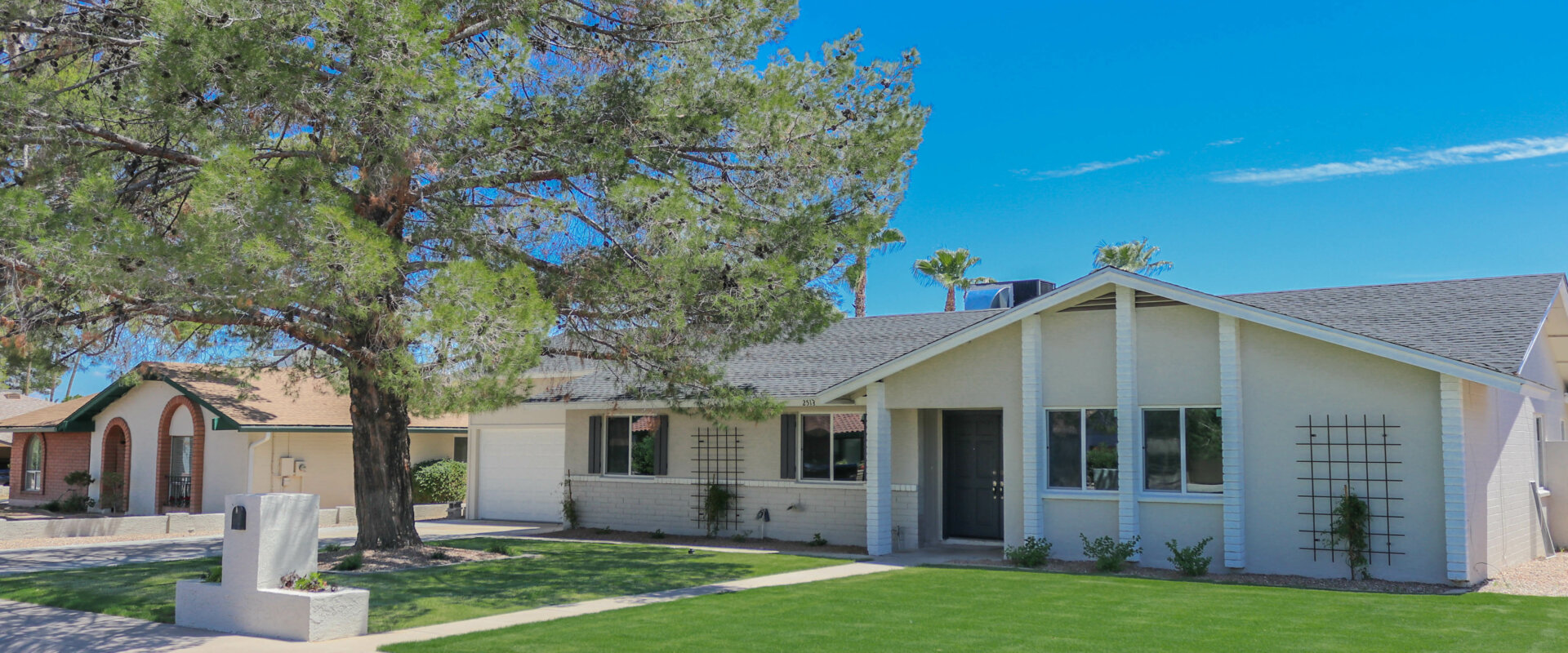
If you’re considering buying a new house before selling your old one, this can be a great way to get into your dream home, but it’s essential to understand the tax implications of doing so. This blog post will discuss the tax implications of buying a new house before selling your old one in Arizona. We will also provide some tips on how to minimize those taxes. If you’re thinking about making a move, keep reading to learn more
Capital Gains Taxes
Any profit is subject to capital gains taxes when a home is sold. The amount of tax owed depends on various factors, including the length of time that the property was owned and the taxpayer’s income bracket. Sometimes, homeowners may be eligible for a partial or complete exemption from capital gains taxes. However, if a house is purchased before selling an existing one, the taxpayer may be liable for paying taxes on the entire profit from selling the first home. This could result in a significant tax bill, so it’s essential to consult with a tax professional before making any decisions. In Arizona, the capital gains tax rate is currently 15%.
Tips for Navigating Capital Gains Taxes
There are a few ways to minimize your capital gains taxes when selling a home.
Primary Residence Exclusion
You can debar up to $250,000 of your capital gains from taxes if you are single or $500,000 if you are married and filing jointly. This is called the primary residence exclusion, which applies as long as you have lived in the home for at least two of the past five years. If you do not meet this requirement, you may still be able to exclude a portion of your capital gains by using the home office deduction or the Capital Gain Tax Worksheet.
Purchase Within 12 Months of Selling
If you purchase your new home within 12 months of selling your old one, you can roll over the profit from selling your old home into purchasing your new one. This is called a like-kind exchange, allowing you to defer paying taxes on selling your old home.
Investing in Capital Improvements On Your Old House
Capital improvements include adding a new bathroom, finishing a basement, painting, or installing central air conditioning. As long as the improvements increase the value of your home, they can be deducted from your capital gains.
Use a Tax-Deferred Account
You can use a tax-deferred account, such as an IRA or 401(k), to purchase a home. This allows you to avoid paying taxes on the money used to buy the property. However, there are some restrictions on using this money, so it’s essential to consult with a financial advisor before making any decisions.
Purchase a Similar Property
If you’re looking to purchase a new home similar in price and size to your old one, you may be able to take advantage of the “home swap” provision in the tax code. This allows you to exchange your old home for a new one without paying any capital gains taxes on the sale. However, this option is only available if you purchase a property of equal or lesser value than your old one.
Consider a Home Equity Loan
If you have equity in your old home, you may be able to take out a home equity loan and use the proceeds to purchase your new home. This can be a great way to evade paying capital gains taxes on selling your old house.
Property Taxes
When you buy a house in Arizona, you are also responsible for paying property taxes. The property tax you will owe depends on your home’s value and the county’s tax rate. If you sell your home before you pay property taxes, you may be unable to recoup the full amount of taxes you paid. In Arizona, the property tax rate is currently 0.75%.
When selling a house, you should factor in the cost of property taxes when budgeting for your new home. You can use the tax rate in your county to estimate the amount of property tax you will owe. You can also contact your county assessor’s office to estimate your property’s value.
Tips for Navigating Property Taxes
Transfer Your Property Tax
If you are selling your old house and buying a new one, you may be able to transfer your current property tax bill to your new home. This is called a “property tax transfer,” which can save you money on your property taxes.
Appeal Your Property Tax Assessment.
If you think your home is being taxed at a higher value than it should be, you can contact your county assessor’s office and file an appeal. If your appeal is successful, you will lower your property tax bill.
Apply for a Homestead Exemption
You may be eligible for a homestead exemption if you own and live in your home. This exemption can save you money on your property taxes. It allows you to exclude up to $25,000 of the value of your primary residence from your property taxes.
What Happens if You Don’t Pay the Taxes You Owe
If you don’t pay the taxes you owe on your home in Arizona; the state can place a lien on your property. This means the state has a legal claim to your property and can force you to sell it to pay off your debt. In addition, if you fail to pay your property taxes, you may be subject to criminal penalties, including jail time. Knowing the tax implications of buying a house before selling in Arizona is essential. Before making any decisions, be sure to speak with a qualified tax professional to ensure that you understand all of the potential consequences.
Consider several tax implications before buying a house and selling your current one in Arizona. While the state offers several tax breaks for homeowners, it’s crucial to weigh the pros and cons before deciding. If you have any questions, speak with a qualified tax professional. With careful planning, you can ensure that you make the most of the tax benefits available to you as a homeowner in Arizona.

